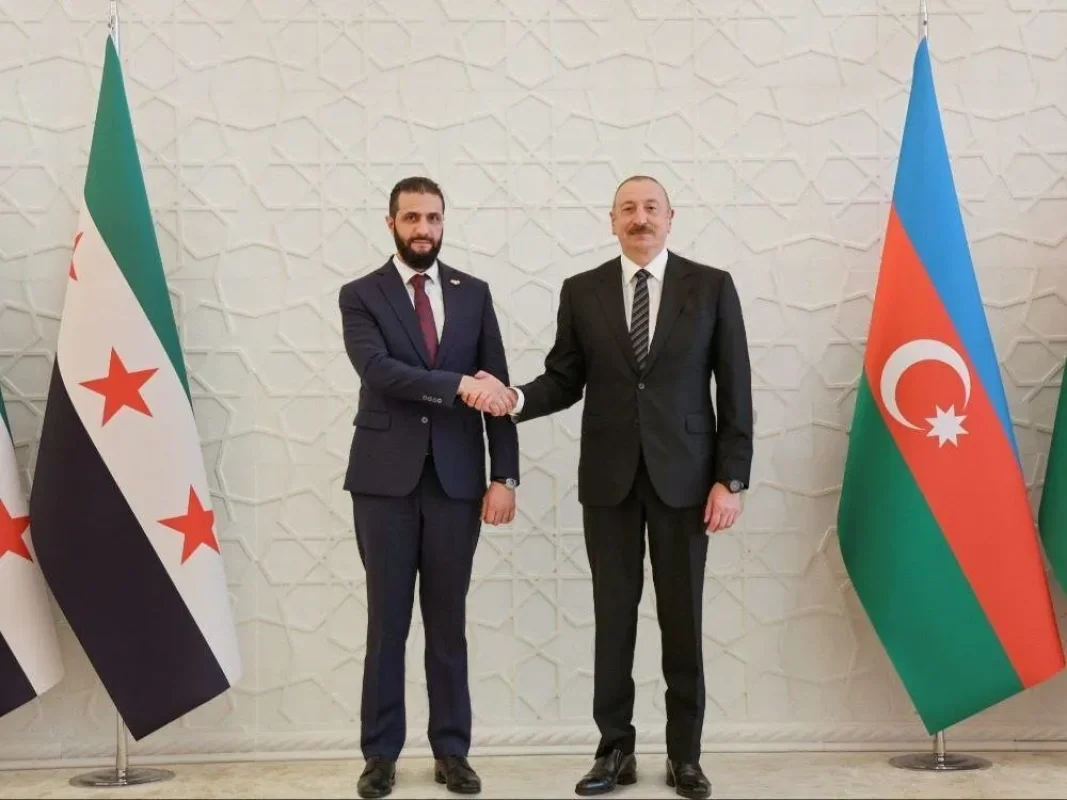A report by the Israeli newspaper Haaretz has revealed that secret meetings were recently held in Baku, the capital of Azerbaijan, between Syrian and Israeli officials as part of a series of quiet security discussions between the two sides. The disclosure has sparked speculation over whether Syria may be edging toward some form of normalisation with Israel.
According to unnamed sources cited by Haaretz, the talks addressed several critical regional issues, including the Iranian presence in Syria, Hezbollah’s activities, and the status of Palestinian factions operating within Syrian territory. One particularly sensitive topic discussed was the potential opening of an Israeli coordination office in Damascus—though not at the level of formal diplomatic representation.
Another Hebrew-language outlet reported that the meetings also included discussions over Israel’s military presence in southern Syria following the collapse of the Assad regime. Israeli forces reportedly advanced into parts of the demilitarized zone stipulated in the 1974 disengagement agreement, raising new questions about sovereignty and compliance with past arrangements.
While the identity of the Syrian official attending the meetings remains undisclosed, all sources confirmed that Syrian Transitional President Ahmad al-Sharaa, who was in Azerbaijan on an official visit at the time, did not participate in the meetings.
Official Damascus Denies Participation
Syria’s state-run Tishreen newspaper confirmed that President Sharaa was not involved in any meetings with Israeli officials “at any level.” The paper dismissed the media reports as “speculative interpretations,” linking them to the Syrian government’s public declaration of a “zero problems” foreign policy approach and its desire to compel Israel to halt its repeated military strikes in southern Syria.
According to Tishreen, the limited backchannel contacts with Israel aim solely to enforce the 1974 disengagement agreement, not to initiate full diplomatic normalisation. The paper emphasized that de-escalation is being sought, but normalisation is not on the table.
Israeli and Syrian Diplomats Headed to Brussels
In a parallel development, Israel’s public broadcaster KAN reported that Israeli Foreign Minister Gideon Sa’ar is expected to attend an upcoming European Union meeting in Brussels alongside Syrian Foreign Minister Asaad al-Shaibani. However, no separate bilateral meeting between the two ministers has been confirmed.
Last week, KAN also quoted a source close to the Syrian president who claimed that a high-profile meeting between President Sharaa and Israeli Prime Minister Benjamin Netanyahu is being planned for September in Washington, on the sidelines of the UN General Assembly. The source suggested that a security agreement, brokered by U.S. President Donald Trump, could be signed at the White House as a first step toward peace and potential normalisation.
UAE Mediation and Gulf Involvement
Gulf sources cited by KAN said that the United Arab Emirates has been actively mediating between Syria and Israel, with Saudi Arabia’s knowledge. However, negotiations remain bogged down over a major sticking point: Israel’s refusal to withdraw from the demilitarized zone, citing its concerns over Sharaa’s inability to fully control the myriad of armed factions operating in southern Syria.
Despite the media frenzy surrounding potential peace talks, the Syrian government has yet to issue any clear or official statement acknowledging or denying the existence or aims of such negotiations. Aside from vague references in official rhetoric to Syria’s desire for stable relations with its neighbours and assurances that the country poses no threat, the transitional authorities in Damascus have avoided publicly addressing the question of normalisation with Israel.
Domestic Constraints and Questions of Legitimacy
Analysts suggest that the Syrian leadership’s silence may reflect a concern over potential popular backlash, especially given that Israel continues to occupy the Golan Heights, seized from Syria in 1967. Moreover, any formal peace agreement would raise significant questions of legitimacy: the current Syrian government was not elected, but rather installed through a transitional power-sharing agreement among military factions. According to the provisional constitutional declaration, the government is expected to oversee a five-year transition, culminating in a permanent constitution and democratic elections.
Until such an elected government is in place, critics argue that signing any agreement of this magnitude—especially one involving a foreign power occupying Syrian land—would be premature and possibly illegitimate in the eyes of many Syrians.
This article was translated and edited by The Syrian Observer. The Syrian Observer has not verified the content of this story. Responsibility for the information and views set out in this article lies entirely with the author.


